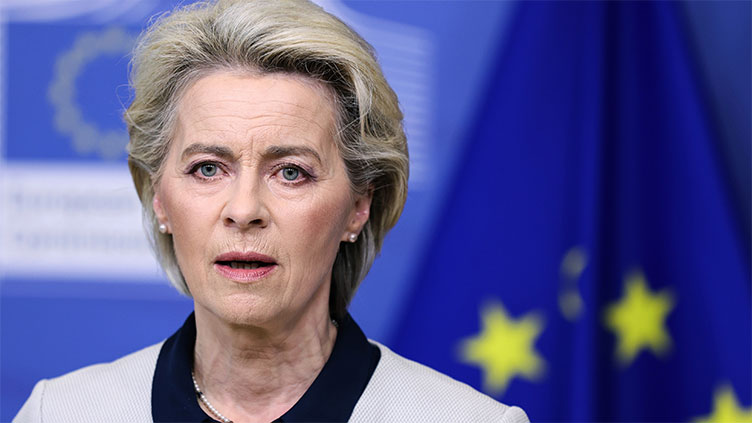
VERSAILLES (France), March 13 (NNN-AGENCIES) — The European Union on eyed an extra 500 million euros in military support for Ukraine and fresh sanctions on Russia, as Moscow’s war spurred vows to bolster the bloc’s defences.
EU leaders meeting for a summit in France’s Palace of Versailles described Moscow’s attack on Ukraine as a wake-up call for the 27-nation bloc to take a tougher approach to ensuring its security.
“There’s no denying the fact that two weeks ago we woke up in a different Europe, in a different world,” European Council chief Charles Michel said.
The EU’s executive put forward a proposal to double its financing for sending weapons to Ukraine to one billion euros as the West scrambles to back Kyiv’s forces in the face of the Kremlin’s onslaught.
The bloc last month broke a longstanding taboo by agreeing to pay for arms deliveries to Ukraine after Russian President Vladimir Putin launched the invasion of his pro-Western neighbour.
The move was part of a broad push by Ukraine’s allies to send weapons amid desperate pleas from Kyiv for air defence systems after calls to impose a no-fly zone were rebuffed.
Alongside further arms supplies, EU leaders also said they were readying a fresh round of economic punishment as they look to keep up pressure on Putin over the bloodshed.
The West has already hit Moscow with a barrage of unprecedented sanctions but the EU has so far failed to agree to follow the US lead in hitting Russia’s key oil and gas exports.
French President Emmanuel Macron said he would talk to Putin again in the coming hours with German Chancellor Olaf Scholz.
Macron warned the Kremlin leader of further “massive sanctions” if he steps up the bombing or seeks to beseige Ukraine’s capital Kyiv.
“In that case, nothing is off the table, nothing is taboo,” Macron said.
“We will do whatever we deem to be effective and useful to halt Russia in its aggression.”
EU chief Ursula von der Leyen later said the bloc will ban the export of luxury goods to Russia, striking a “direct blow to the Russian elite”.
On Thursday, she said the 27 leaders agreed to explore ways to eliminate the bloc’s dependency on Russian fossil fuels in five years.
Estonian Prime Minister Kaja Kallas said the bloc was looking at issues such as whether to “procure common capabilities, for example, that are too expensive for any individual state to buy on their own.”
She also called for all EU members states — six of which are not in NATO — to mirror the military alliance’s commitment to spend at least two percent of GDP on defence.
Collective security in the European Union is primarily handled by the US-led NATO alliance, but France, the EU’s biggest military power, has been spearheading calls for an enhanced role for the bloc.
The assault on Ukraine has now prompted some about-turns.
Germany tore up decades of policy by agreeing to send weapons to Ukraine after the start of the war and has pledged an extra 100 billion euros ($110 billion) to help improve its armed forces.
Russia’s Foreign Minister Sergei Lavrov on Thursday said countries were acting “dangerously” by backing the supply of arms to Ukraine. — NNN-AGENCIES






